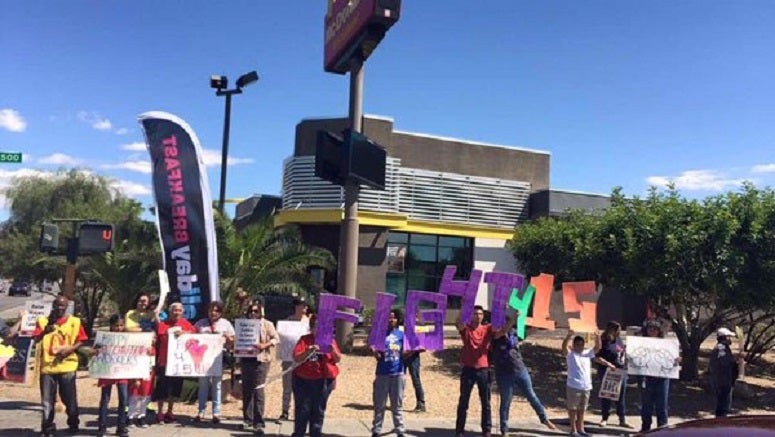Uncategorized
Supreme Court Refuses Appeal of Seattle’s $15 Minimum Wage

Seattle was the first major city in the U.S. to approve a $15 minimum wage. And yesterday, the U.S. Supreme Court made sure that it would stay in place as is.
The high court announced it would not hear a challenge to the law brought by the International Franchise Association. The big business group argued that franchises of fast food restaurants such as McDonald’s and Burger King should be classified the same as small businesses and thus be given three additional years to phase in the wage increase.
The ruling’s significance stretches beyond the Pacific Northwest. While the Supreme Court’s passing on the case doesn’t set national precedent, it does make it clear that franchisees will encounter difficulties in seeking such exemptions, especially in the Western U.S. where the Ninth Circuit Court of Appeals ruled against them.
Since Seattle passed its $15 minimum wage, many other cities followed suit. And earlier this year, California and New York within days of one another passed laws phasing in the same hike in the wage floor. Corporate America, not surprisingly, has been less supportive of the increases.
But while the Supreme Court’s rejection of the appeal is good news for workers, the fight for fair wages rages on in many other parts of America. The Fight for $15 is a fight just to make more than the current federal minimum wage of $7.25 an hour in many places. And in some states, it is the Legislature itself going to war against its own cities that try to raise that standard.
Alabama, for example, passed a law to nullify an ordinance passed by the Birmingham City Council that would have raised the minimum wage there to $10.10 an hour. But last week, city residents struck back. The state’s NAACP chapter filed a federal civil rights lawsuit, saying the nullification bill was motivated by racism and therefore violates the Equal Protection clause of the U.S. Constitution. It was an all-white majority of the Alabama Legislature and the state’s white governor that approved the bill that tamped down on the decision of a majority-black city.
Everyday Americans need lawmakers of character to stand up for them over rich and powerful corporate elites. Some progress has been made. But there is still a ways to go.